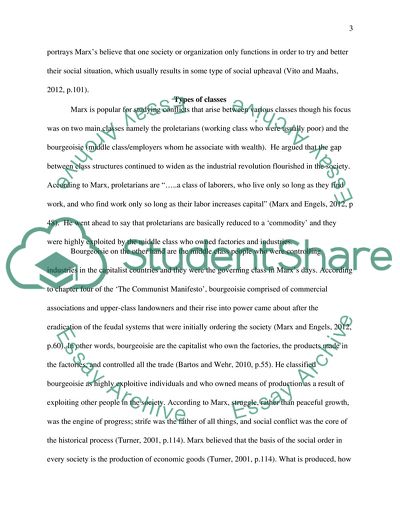Cite this document
(K. Marx' Conflict Theory Essay Example | Topics and Well Written Essays - 1750 words, n.d.)
K. Marx' Conflict Theory Essay Example | Topics and Well Written Essays - 1750 words. https://studentshare.org/philosophy/1833935-karl-marx-claims-all-history-is-the-history-of-class-conflict-what-are-classes-how-are-they-formed-why-do-they-conflict-is-conflict-inevitable
K. Marx' Conflict Theory Essay Example | Topics and Well Written Essays - 1750 words. https://studentshare.org/philosophy/1833935-karl-marx-claims-all-history-is-the-history-of-class-conflict-what-are-classes-how-are-they-formed-why-do-they-conflict-is-conflict-inevitable
(K. Marx' Conflict Theory Essay Example | Topics and Well Written Essays - 1750 Words)
K. Marx' Conflict Theory Essay Example | Topics and Well Written Essays - 1750 Words. https://studentshare.org/philosophy/1833935-karl-marx-claims-all-history-is-the-history-of-class-conflict-what-are-classes-how-are-they-formed-why-do-they-conflict-is-conflict-inevitable.
K. Marx' Conflict Theory Essay Example | Topics and Well Written Essays - 1750 Words. https://studentshare.org/philosophy/1833935-karl-marx-claims-all-history-is-the-history-of-class-conflict-what-are-classes-how-are-they-formed-why-do-they-conflict-is-conflict-inevitable.
“K. Marx' Conflict Theory Essay Example | Topics and Well Written Essays - 1750 Words”. https://studentshare.org/philosophy/1833935-karl-marx-claims-all-history-is-the-history-of-class-conflict-what-are-classes-how-are-they-formed-why-do-they-conflict-is-conflict-inevitable.


